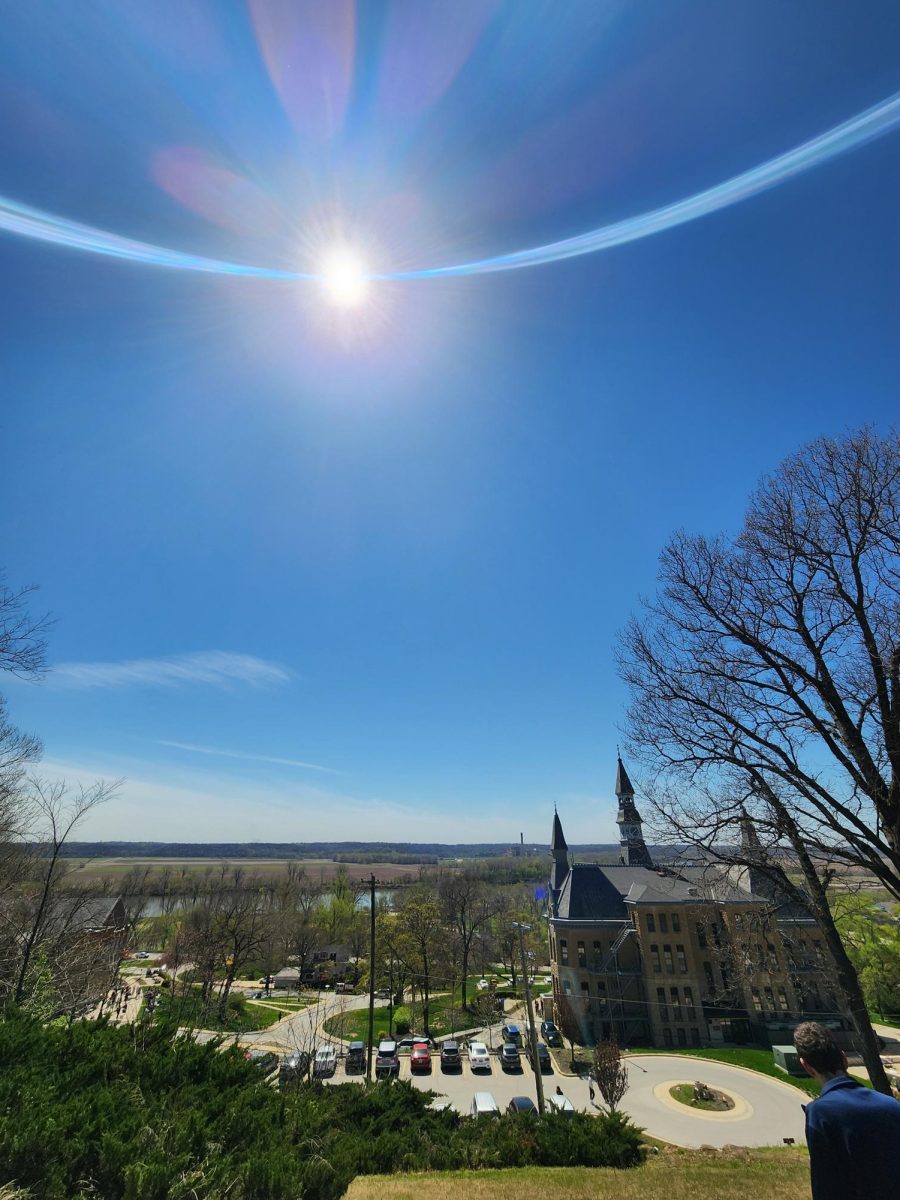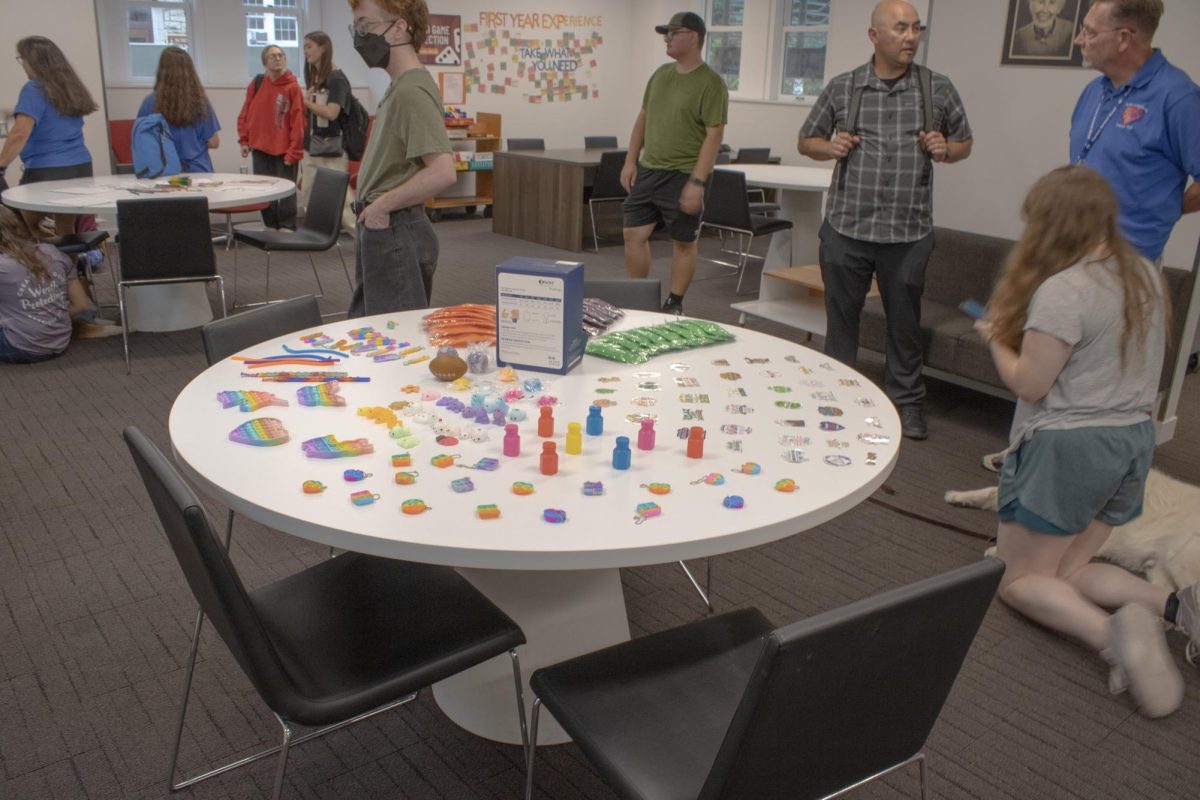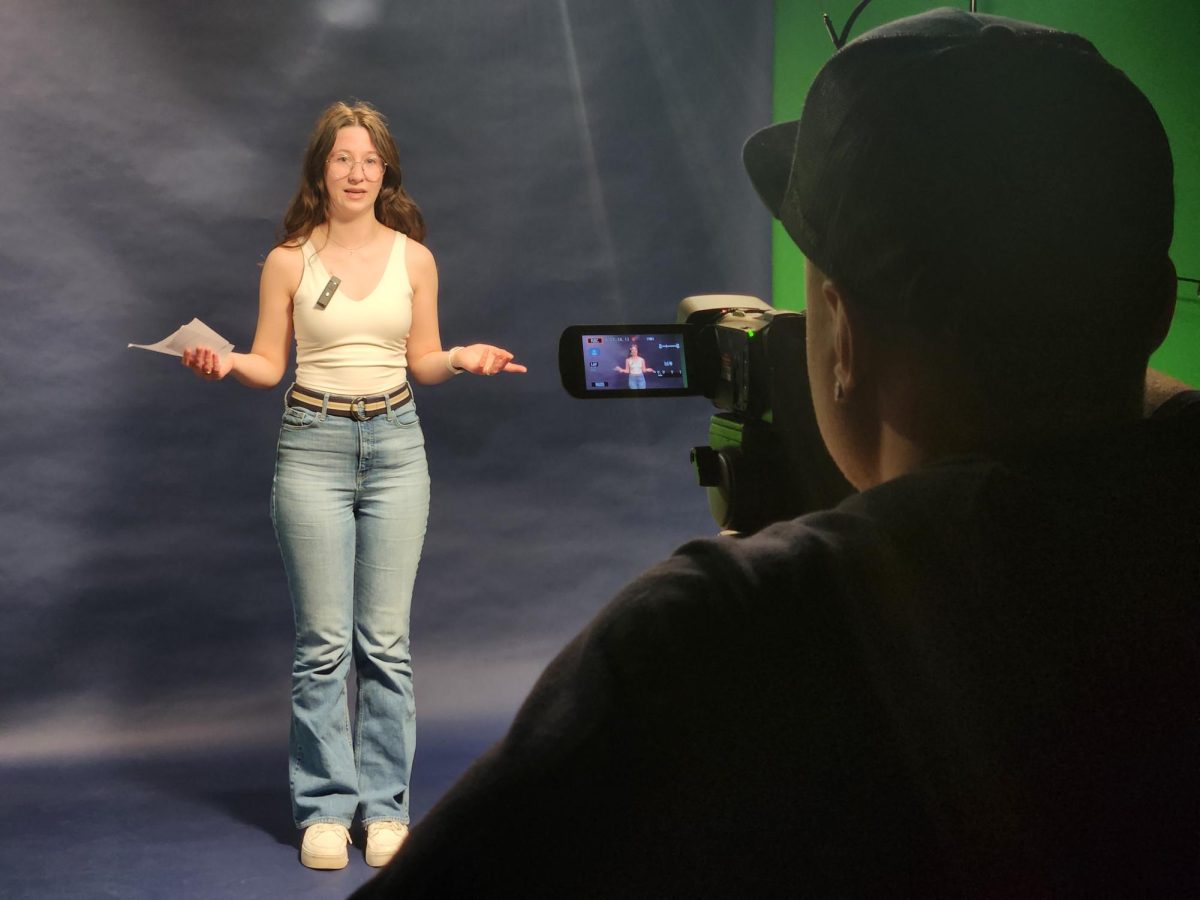The Park University community ventured outside to view the partial solar eclipse on April 8, 2024.
Parkville experienced a deep coverage (90.1 percent) solar eclipse at 1:54 p.m. As the moon passed between the Earth and the sun, the Parkville campus was covered in an eerie dusk-like tone.
The main student gathering centered around Thompson Commons where over 50 students gathered shortly after noon. Student Life provided a limited amount of free eclipse glasses and snacks. Students spread out on the grass and used their special glasses to watch the astronomical phenomenon.
Another group of students trekked up the hill to the old observatory. “It was just amazing,” said Kofi Black, an MBA sophomore from Ghana.
Philip Walker, a freshman from Ghana, said the eclipse is something special to behold.
Both Black and Walker last viewed an eclipse in 2006 in Ghana.
Martin Roberson, a secondary education sophomore, brought eclipse glasses he saved from 2017, when Kansas City last experienced a solar eclipse. “I was cleaning out some old boxes of stuff and I found I still had sealed 2017 glasses, and I thought it was pretty funny,” he said. Since this year’s eclipse was not total, Martin did not find it as cool.
“It’s still a neat thing to experience; you get to see so many of these in your life.” Martin enjoys hanging out with friends on campus, and this was a great excuse to do just that.
Outside of Norrington Library, Park University President Shane Smeed and several Board of Trustee members donned their eclipse glasses alongside students and faculty. “I thought the eclipse has been fantastic. It reminds me of 2017, when everyone got together at Julian Field … a lot of smiles,” said Smeed.
Ashlyn Weber, who graduated in 2019 from Park, and was formerly the associate director of the George S. Robb Centre, came back to campus to visit and view the eclipse. “It was a very congenial experience,” said Weber. “It was nice to see faculty, staff and students experiencing the same event.” Weber remembered the last eclipse, saying, “The one in 2017 was a better eclipse, but I enjoyed myself more being with good friends, former colleagues and the weather was beautiful.”
Solar eclipses occur regularly, according to AP News, but these often occur where no one can view them, over the Pacific Ocean or Antarctica. The next solar eclipse will occur in 2026 but will only be viewable in Greenland. North America will experience a total eclipse in 2033, but only in Alaska. The next solar eclipse viewable in the continental United States is not until 2044, according to NASA, and will only be viewable in three states. Missouri is not one of those states.
However, in 2045, a total solar eclipse will stretch from northern California to Cape Canaveral, Florida, according to AP News.








